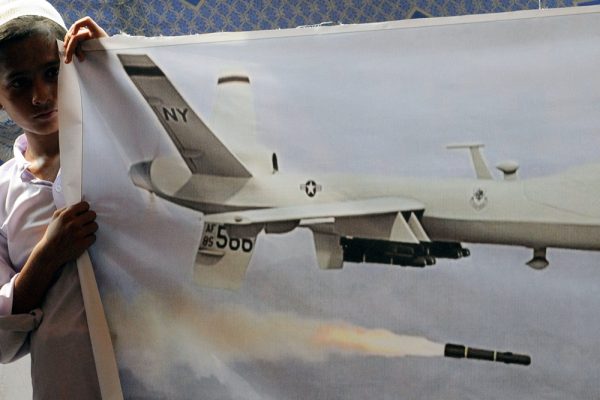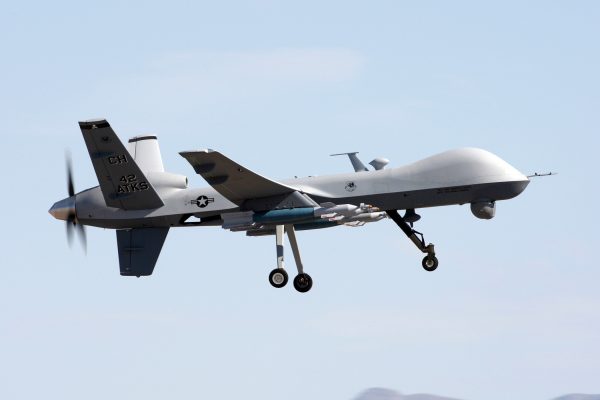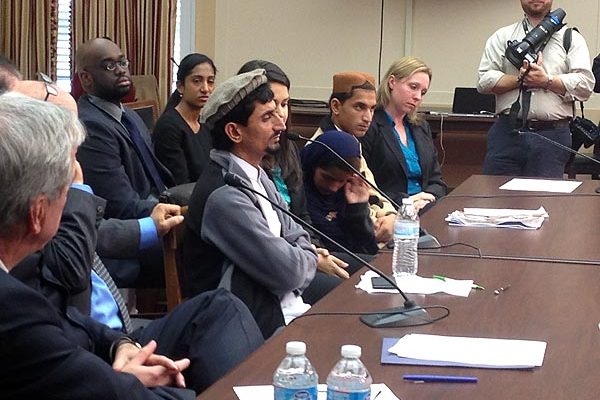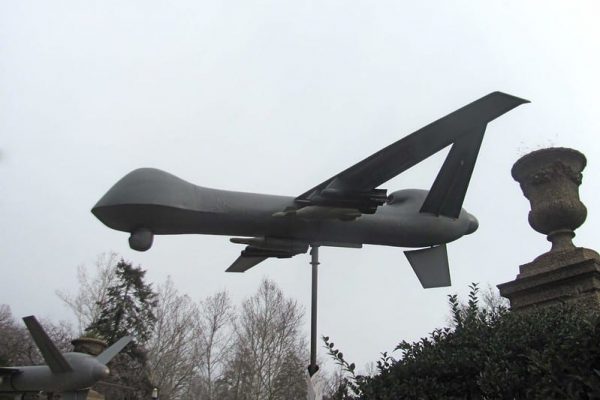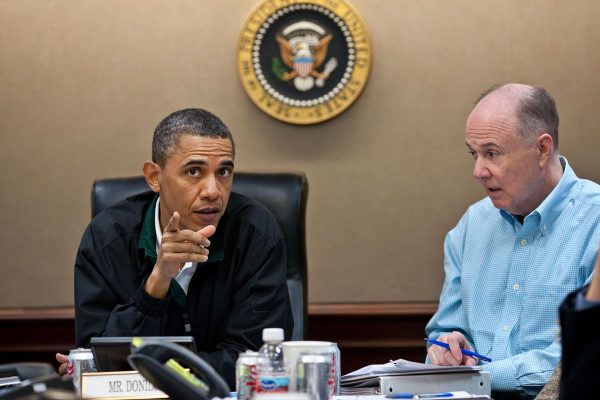“While killing remotely is different from killing on the ground, it still carves deep scars,” the New York Times wrote this week in its article “The Unseen Scars of Those Who Kill Via Remote Control.” It’s the latest in the paper’s semi-regular attempts to encourage empathy with drone operators, following other pieces on trauma and stress among drone “warriors.” And the Times is not alone. As Madiha Tahir made clear in her essay on drone attacks on Pakistan, there is a “thriving genre” of reports on the mental afflictions of drone operators, with NPR, Slate, and the Washington Post joining in.
The perspectives of drone operators have in fact dominated our entire cultural understanding of drones—quite literally. As the late historian Nasser Hussain argues in his celebrated BR essay “The Sound of Terror: Phenomenology of a Drone Strike,” there is a disturbing monopoly of the visual in drone warfare. Watch any YouTube clip, and the camera angle is always the same: an overhead shot. The videos are also silent, apart from the occasional ground command. This perspective from the air—which operators speak of as a bird’s-eye view and, meaningfully, God’s-eye view—is one purely of sight. But on the ground, for Afghans, Pakistanis, Yemenis, and more, sound is a defining feature of drones.
“For the people suffering under drone warfare, the sound is anywhere from constant buzzing—an anxiety-inducing soundtrack for everyday life—to deafening explosions accompanying destruction,” Atiya Husain wrote last year in her new introduction to Nasser’s essay, republished on the twentieth anniversary of 9/11. “Yet it is not the audio but rather the visual that structures debates on drones in the halls of power. The visual informs two fictions about drone warfare: that drones require few personnel, and that they are precise. Neither are true, and both are structured by the arrogant fantasy of a God’s-eye view through the lens of a camera. The visual shapes the widespread falsehoods about drone warfare in the United States and shrinks public perceptions of their actual impact.”
Today’s reading list serves as a rebuttal to the Times’ latest attempt to shift focus away from the victims of drone bombings, and invites us to think about how drone operators’ perspectives dominate our culture. It’s a hard task, for, as Tahir observes, “it doesn’t make for the kind of war story Americans want to learn about.” (Indeed, as a friend told her while trying to explain the logic of journalists: “You have to ask yourself, if this story were a movie, what role is Matt Damon going to play?”) But it is nonetheless work that Boston Review has long been committed to, and we are grateful that you, our members, continue to support it.
Drone attacks were sold to the American people as a way to limit U.S. involvement in Pakistan. In reality, U.S. empire has only continued to exert influence.
From drone strikes to counterinsurgency efforts, the work of the late historian Nasser Hussain highlights the importance of understanding the mechanics of the War on Terror, not just its effects.
A Pakistani family demands acknowledgment of their grandmother's death.
Have efforts to conduct war more humanely in fact only perpetuated it?
Ambassador Akbar Ahmed discusses the findings of his research into U.S. drone attacks in Pakistan and their effects on the region.
Far from a relic of the past, September 11 continues to normalize state-sanctioned barbarity.


